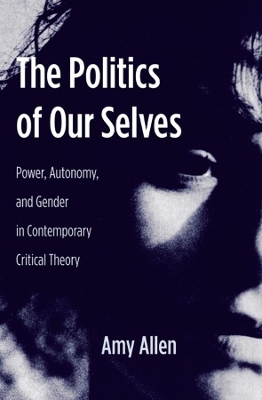Some critical theorists understand the self as constituted by power relations, while others insist upon the self's autonomous capacities for critical reflection and deliberate self-transformation. Up to now, it has all too often been assumed that these two understandings of the self are incompatible. In her bold new book, Amy Allen argues that the capacity for autonomy is rooted in the very power relations that constitute the self. Allen's theoretical framework illuminates both aspects of what she calls, following Foucault, the "politics of our selves." It analyzes power in all its depth and complexity, including the complicated phenomenon of subjection, without giving up on the ideal of autonomy. Drawing on original and critical readings of a diverse group of theorists, including Michel Foucault, Jurgen Habermas, Judith Butler, and Seyla Benhabib, Allen shows how the self can be both constituted by power and capable of an autonomous self-constitution. Her argument is a significant and vital contribution to feminist theory and to critical social theory, both of which have long grappled with the relationship between power and agency.
If critical theory is to be truly critical, Allen argues, it will have to pay greater attention to the phenomenon of subjection, and will have to think through the challenges that the notion of subjection poses for the critical-theoretical conception of autonomy. In particular, Allen discusses in detail how the normative aspirations of Habermasian critical theory need to be recast in light of Foucault's and Butler's account of subjection. This book is original both in its attempt to think of power and autonomy simultaneously and in its effort to bring the work of Foucault and Habermas into a productive dialogue.
- ISBN10 0231136234
- ISBN13 9780231136235
- Publish Date 9 July 2013 (first published 30 November 2007)
- Publish Status Active
- Publish Country US
- Imprint Columbia University Press
- Format Paperback (US Trade)
- Pages 248
- Language English
